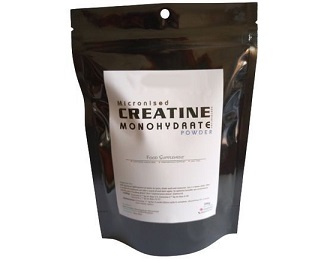Randomized Clinical Trial Showed That Creatine Supplements Helped With Post-COVID Chronic Fatigue Syndrome
Nikhil Prasad Fact checked by:Thailand Medical News Team Sep 20, 2023 1 year, 7 months, 2 hours, 3 minutes ago
COVID-19 Supplements: The emergence of post-viral fatigue syndrome (PVFS), also known as chronic fatigue syndrome or myalgic encephalomyelitis, has posed a significant challenge in the wake of the COVID-19 pandemic. PVFS is characterized by debilitating fatigue, post-exertional malaise, and unrefreshing sleep, lasting for more than six months. Recent studies have revealed a high prevalence of PVFS after COVID-19, affecting up to 45% of survivors. Finding effective interventions to alleviate the burden of post-COVID-19 fatigue syndrome is of paramount importance. Among potential solutions, dietary creatine has gained attention due to its known benefits in various lung conditions during rehabilitation. This article delves into the results of a groundbreaking randomized clinical trial
COVID-19 Supplements study conducted by the University of Novi Sad in Serbia, which explored the efficacy and safety of creatine supplements in managing post-COVID-19 fatigue syndrome.
 Creatine's Role in Mitigating Post-COVID-19 Fatigue
Creatine's Role in Mitigating Post-COVID-19 Fatigue
Creatine, a naturally occurring compound found in the body and certain foods, plays a crucial role in cellular bioenergetics, neuroprotection, antioxidant activity, and inflammation suppression. These functions align with the underlying issues often observed in conditions characterized by chronic fatigue, making creatine a compelling candidate for intervention.
Previous studies had already shown promising results for creatine supplementation in syndromes associated with long-term fatigue, such as fibromyalgia and chronic fatigue syndrome. However, no clinical trials had specifically explored its effectiveness and safety in post-COVID-19 fatigue syndrome until the University of Novi Sad's recent trial.
The Study Design
The randomized, placebo-controlled, double-blind trial conducted by the study team involved 12 patients with post-COVID-19 fatigue syndrome. These patients were administered 4 grams of creatine monohydrate per day for a duration of six months. The trial aimed to assess the effects of creatine supplementation on patient-reported outcomes, clinician-reported outcomes, and tissue creatine levels in post-COVID-19 fatigue syndrome patients.
Key Findings
The study findings showed positive results with the key findings being as follows:
-
Increase in Tissue Creatine Levels: One of the primary findings of the study was a significant increase in tissue creatine levels in various parts of the body. Specifically, the vastus medialis muscle and right parietal white matter showed notable increases in creatine levels. This suggests that creatine supplementation effectively replenishes creatine in tissues that may be compromised in post-COVID-19 fatigue syndrome.
-
Reduction in General Fatigue: After three months of creatine intake, patients reported a significant reduction in general fatigue compared to baseline values. This improvement in energy levels is a promising indicator of creatine's positive impact on post-COVID-19 fatigue syndrome.
-
t;Improved Symptom Scores: Notably, creatine supplementation led to significantly improved scores for several post-COVID-19 fatigue syndrome-related symptoms, including ageusia (loss of taste), breathing difficulties, body aches, headache, and difficulties concentrating. These improvements in symptomatology can greatly enhance the quality of life for individuals suffering from this syndrome.
-Safety Profile: Importantly, the study found that creatine supplementation induced no major side effects, indicating its safety as an intervention for post-COVID-19 fatigue syndrome.
Implications and Future Directions
The study provides compelling evidence for the efficacy and safety of creatine supplementation in managing post-COVID-19 fatigue syndrome. The increase in tissue creatine levels, reduction in fatigue, and improvement in symptom scores offer hope for individuals grappling with the persistent effects of COVID-19.
However, it's important to acknowledge that this trial had some limitations. The sample size was relatively small, and the study focused on young-to-middle-aged adults with moderate post-COVID-19 fatigue syndrome. Further research is needed to explore the efficacy of creatine in different patient populations, including the elderly, children, and those with varying disease severity.
Additionally, longer administration spans and more comprehensive biomarker assessments could provide deeper insights into the mechanisms of creatine's action in post-COVID-19 fatigue syndrome.
Conclusion
In conclusion, creatine supplementation has emerged as a promising intervention for post-COVID-19 fatigue syndrome. The study findings demonstrate that six months of creatine intake can improve tissue bioenergetics, alleviate fatigue, and mitigate various symptoms associated with the syndrome. Given the safety profile of creatine supplementation, it holds great potential as a cost-effective and accessible therapeutic option for individuals grappling with the lingering effects of COVID-19. Further research is warranted to validate these findings across diverse post-COVID-19 patient cohorts, paving the way for a brighter future for those affected by this debilitating condition.
The study findings were published in the peer reviewed journal: Food Science and Nutrition. (Wiley)
https://onlinelibrary.wiley.com/doi/10.1002/fsn3.3597
For the latest on COVID-19 Supplements, keep on logging to Thailand Medical News.
